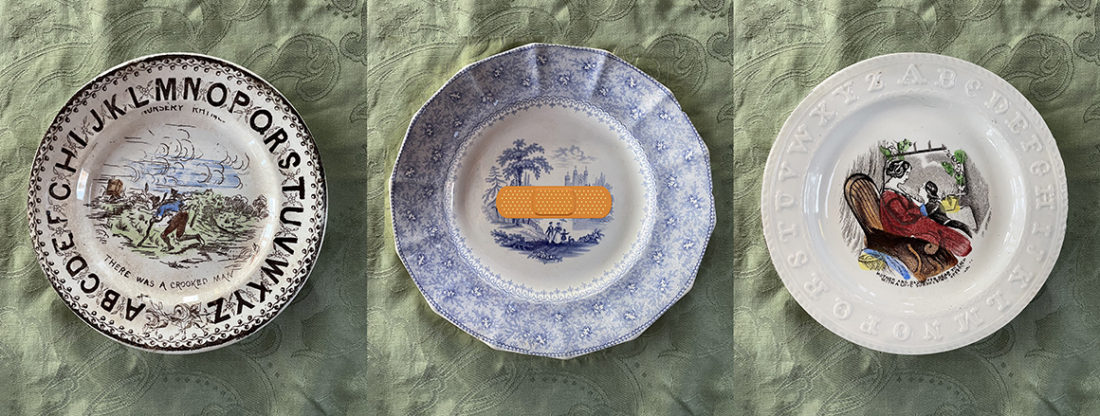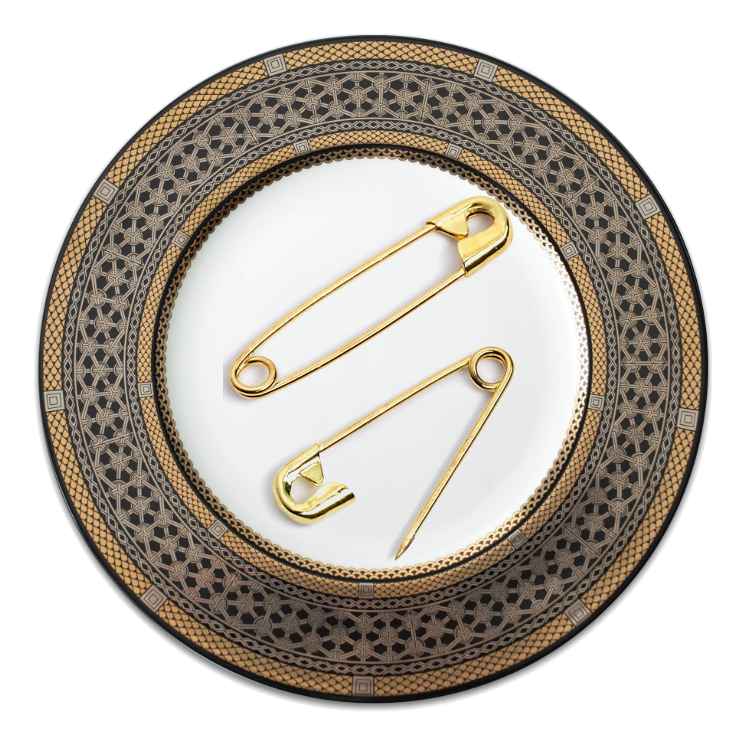I leave the safety of my home, as I do three times a week, for life sustaining treatment at a hospital in the northwest of greater Johannesburg. It seems like a contradiction, to risk life for life. Hospitals are known to be sites for exposure to many different kinds of infection, not least the coronavirus that is ravaging the world. Hundreds of thousands of people have been killed. I could be one of them.
On the passenger seat next to me, sits the letter by my doctor that explains my need to access medical care. One edge is held, at the ready, by a tissue folded over it, so I will not have to directly touch it when giving it to a police officer, nor when he returns it. It is a policeman I imagine of such an encounter, and sanitise my hands in my mind as I do.
I have been surprised not to have had to deal with any police or army personnel during the period of our most stringent level of regulation, and have rarely seen them on the road. The roads have been quiet, not necessitating the overt presence of the security forces perhaps. They most likely are considered better deployed to the townships and informal settlements where social distancing is much more of a challenge to practice.
The top part of my face mask hangs loose as I drive. It tends otherwise, with my nose covered, to steam up my spectacles. The few people I see driving or walking all seem to project an air of justification against latent suspicion and accusation. I sense the furtive look of the driver stopped next to me at the robot [traffic light]. I am committed to continue obeying the rules of the road, as quiet as it may be. She haltingly edges forward, but holds back from driving through the red light by what I presume to be embarrassed guilt, having driven through the one before. We sit for an age at the quiet intersection, in uncomfortable accountable companionship. The cars sigh into gear as the robot releases us.
I am surprised to see a small raptor in a tree in the patch of ground next to the hospital as I approach its boomed entrance. A boon perhaps of the fewer people and traffic and industrial activity. I hope for instructive measures post the lockdown regulations that will continue to help the green lungs of our environment to breathe.
As I am let through the boom, I am pleased that the access cards the security guards normally circulate from hand to hand to hand, on entrance and exit, have been dispensed with. Even before coronavirus and lockdown, it was an especially unhygienic and germ-spreading practice for a hospital.
A car guard waves and directs me to a reserved parking spot. We are known courtesy of our regularity, and the Flame Orange of my vehicle is no doubt unmistakeable. There is ample parking space though these days. My heart wrenches for those who are restricted from seeing their ill loved ones in hospital. I think of the agony of this for the Covid-19 departed and their families. I think too in particular of friends of ours whose teenage daughter has just taken an overdose of paracetamol, and whom they cannot be with, to love, to hold, to soothe, to caress.
I park and text my family that I have arrived safely, lest I had been intercepted and arrested by an officer not able to exercise due discretion. I am reminded of the days of the states of emergency and the knot in the stomach about roadblocks and detention.
I spray sanitiser on my hands and fix my face mask before I get out of the car. I keep a distance from the two women ahead of me as I walk to the prefabricated unit. They are masked. But it looks not right that they should even be walking and talking side by side.
I am glad when I enter the unit that the door is open and I do not have to touch the handle. I go to the bathroom, the door to which thankfully is also open. I press my elbows against my sides to hold my sleeves, wriggle out my hands, and use my elbows on the extended handle tap to open it and wash my hands with the disinfectant. I half close the bathroom door with my foot.
I place the obligatory book I take with me on the narrow bed allocated to me, and put my cell phone atop the book. I feel comfortable that the bedding and bed have been washed and sanitised. I am less certain about the overbed tray though, and the number of people who may have touched it. I turn my face away from Zanu, hooking up Annamarie in the bed next to mine, who shouts loudly across my body to his colleague Thapelo on the other side of the space. Still, this is a much larger facility than the single room for eight-at-a-time that was used prior to the pandemic. It is divided into sections of four beds each, which are sufficiently distant from one another.
I proceed to weigh myself to record the fluid I have gained and that I am no longer able to effectively clear. I have to limit my fluid intake, which is not easy. I cannot remember what it was like once to drink freely, as and when. Water has never tasted so good. Oh, so good. When I have some, I pour just less than half of a small glass, which my son especially bought for me, and drink it slow and hard so that I need less of it to feel satiated. I feel its sweet coolness go down my throat, and soak up the last sip with my cheeks. Pure, clean, crystal blessing that makes me exhale Shukr Alhamdullilah.
I am careful to get up onto the scale firmly so I don’t have to touch it to steady myself. My legs have been depleted in muscle. Three litres will have to be cleared to get to my dry weight. I have my fluid intake and retention under better control now. In the beginning, it tided into my lungs and made breathing difficult. I slept sitting up in bed, for weeks. I think I know what the Covid-19 sensation of drowning must feel like.
Sbu handles my left arm, which rests on a bulky pillow, with gloved hands to insert two long, thick needles at different points into an artery that has been surgically joined to a vein. It is called a fistula, which has enlarged the vein. I wince, but it doesn’t really hurt. The fistula is accustomed to its penetration. Sbu connects tubes to the needles, which are taped down. The clear tubes to the machine that is now an extension of my body fill with red. I watch as one tube carries my blood out, at a regulated rate, to a dialyzer where it is filtered. A solution enters the dialyzer, draws extra salt, waste and fluid from my blood, is pumped out. My blood continues through a pressure monitor and an air trap, making it safe to come back into my body through the other tube, cleaned. Sanitised.
Sbu and I tease Zanu at his joy for Liverpool, and mourn Manchester United. I keep my voice low to influence the levels of their own and what droplets may be expressed through masks.
Gugu, who works in the kitchen, serves me tea and a toasted egg sandwich. I remove my mask and let it hang off one ear while I eat. I sip gulps of the hot tea. It tastes so good and goes down so well. As best as I can with my free hand, I sanitise my hands from the nozzle bottle on the tray after handling the cup and teapot and tray and utensils.
Buhle, an assistant, takes my temperature with an ear thermometer. It is 37˚C. I relax at the result of that.
I try to read and work and write while connected to the machine. It is not always conducive to do so. I can feel tired. Sometimes there are minor complications. But twice I was hospitalised. Once for a needle that did not go in well enough, and another, at another unit, that was inserted by sheer incompetence. That was in the early days, when my fistula was insufficiently developed.
My body thinks it is bleeding. It quickly pushes my blood pressure up high, to 179/109 mm Hg. I take 2 X 5mg of Ciplavasc 5. They are not very effective in reducing the pressure if I take them later rather than sooner. Four hours later, the flow of blood out of my body, and returned, is stopped. The machine signals its time by sounding a short, melodic alarm. The needles are drawn out and I sit for a while applying pressure to gauze over the two sites of insertion of the needles, to stem bleeding.
I weigh myself again for my fluid extraction to be recorded. I give my hands a good wash with disinfectant liquid. I thank and greet Sbu and the other health workers before leaving. I have to use my foot to open the partially closed door on the way out.
It is chilly. I have left my jacket in the car to minimise the number of items I bring in to the unit and expose. I spy the car guard. He readies to guide me out of the parking lot. I have stopped giving him the little tub of yoghurt and juice that is served with our tea. I fear the contact, for myself and him.
I disinfect my hands again in the car and text my family to let them know I am leaving for home. It is dark now. The roads are even quieter. I stop at a robot. Absolutely no one is about. Roadblock to the future, to life. I don’t know if I am safer or more vulnerable.
arts and culture worker and a communications
practitioner.
He was part of the first wave of post-apartheid
Black filmmakers with the beginning of the end
of apartheid in the early 1990s, ushering in new
subject concerns, aesthetics and sensibilities. He
had devoted himself in the 15 years before that to
the struggle for democracy in South Africa. Feizel
is a forerunner in establishing “creative documentary”
as a genre in South Africa, with his feature documentary
“What Happened to Mbuyisa?” in 1998.
As a creative non-fiction writer, Feizel has been
published in the Mail & Guardian, Daily Maverick,
City Press, News24, The Star and Oprah Magazine.
[He has published academically in Cahiers d’études
africaines (2018) and by the Mapungubwe Institute
of Strategic Reflection (2014).
Feizel has wide interests in arts and culture, including
community heritage reclamation. He was a founder of the
award winning The Fietas Festival, a community cultural
initiative to reclaim the heritage of his birthplace,
Vrededorp/Pageview, that was destroyed by forced
removals under the Group Areas Act of apartheid.]

